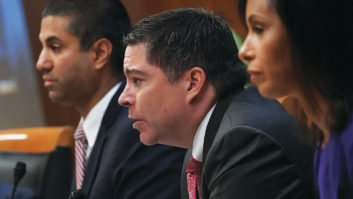The author is membership program director of the National Federation of Community Broadcasters. NFCB commentaries are featured regularly at www.radioworld.com.
One of community radio’s great challenges is keeping the income flowing. We are not alone. Frankly, income is a challenge faced by commercial media colleagues as well. How is community radio positioning itself to do well? New research might point out ways to do better.
For noncommercial broadcasters, a big source of income comes in the form of underwriting, those spots with specific rules that adhere to Federal Communications Commission policies governing noncommercial media. There are many disputes in some corners of community media about underwriting. To a few people, underwriting is little more than glorified advertising. However, the sophisticated ear hears the difference, and the smart station knows where it can go with its spots, because they’re integral to revenue.
[Read: Community Broadcaster: Are You Listening, FCC?]
Underwriting is beneficial for the local independent business looking to associate its name with something beloved like a station; for a station to demonstrate its support is broad and spread all around town; and for the listener to be informed about local happenings and places to visit. Many community radio stations rely on underwriting as income that isn’t derived from the dreaded pledge drive. For all the reasons above, a community station’s underwriting program must operate optimally to be effective.
Unfortunately, community stations nationwide seem to struggle with keeping the best underwriting teams in place. A new study may shed some light on finding and attracting the right underwriting accounts representatives to take your station’s underwriting up a notch.
The Center for Sales Strategy’s State of Media Sales 2019 report reveals some intriguing, and some not-surprising attitudes among stations and sales staff.
A few stations want to rely on 100% commission for an underwriting job. Not only are states looking askance at such arrangements these days, but competition for good sales people is fierce. In addition, according to the report, only 8% are willing to work for solely commission. The majority — 57% in the CSS poll — want a package that includes both base pay and commission.
However, stations should not assume shifting to a salary structure will be satisfactory. A whopping 92% of those surveyed indicated disinterest in a compensation package that did not include commission.
How much is your station investing in training and developing your underwriting staff? What kinds of printed materials about the station are you putting in their hands? Is it of the quality you want and expect to make an impression on a prospective underwriter? Your community station’s leaders should be asking all of these questions, because it turns out this sort of people investment is more meaningful than meets the eye. Around 25% of stations say their reps don’t have the collateral they need, and over 20% say the material they have for their staff isn’t current. More troubling, one-third of managers are not conducting regular sales training sessions with staff.
Is it any wonder then that managers suggest 20–30% of their salespeople are underperforming?
Stations expect more sales appointments from their representatives, even as those reps are finding it harder than ever to get appointments. It thus stands to reason that equipping a station’s representatives with the skills, materials and support they need to do their best benefits not just them, but a station and a community.







